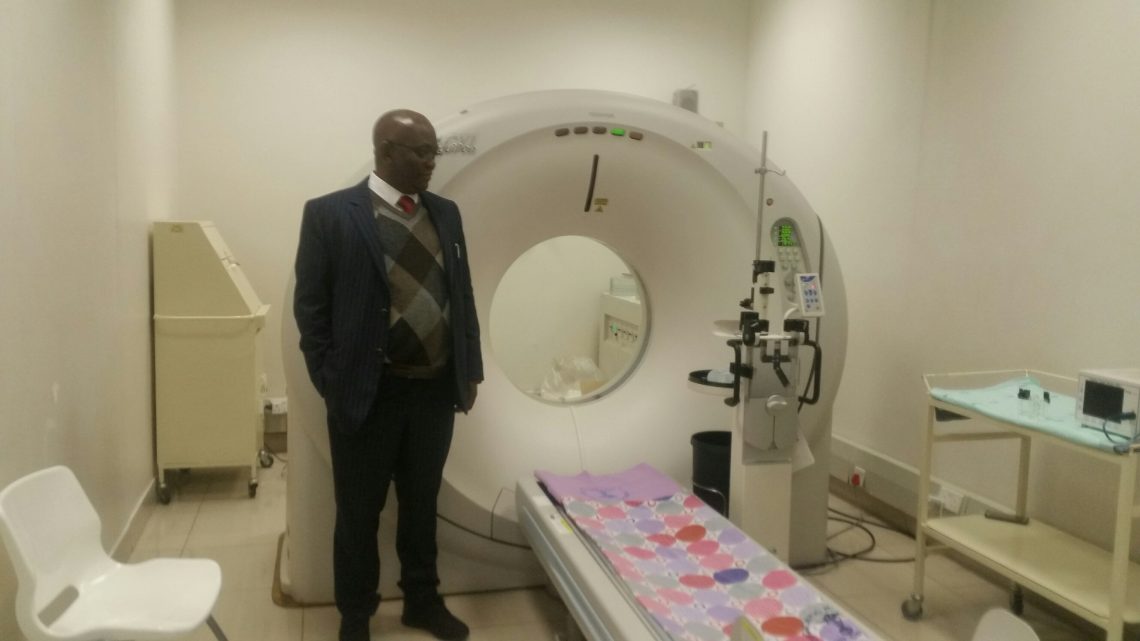The commissioning of the first and only Diagnostic Radiology and Magnetic Resonance Imaging (MRI) Centre in Harare will go a long way in improving healthcare provision in Zimbabwe.
In his welcome remarks at the commissioning of the centre in Harare, Dr. David Parirenyatwa, the Minister of Health and Childcare said the initiative would ensure the provision of affordable but high quality medical care to all citizens in line with the national goals.
The centre is the brainchild of Dr Dumisani Ndlovu, the Managing Director of DRMC Medical Centre that dates back to 1990 when, on the 1st of May 1990 an ultrasound scanning (USS) machine was installed at the Fife Avenue Medical Centre in Harare.
In June 1991, the practice moved to Number 104 Nelson Mandela Avenue and X-rays were added to the USS. Diagnostic radiology then was mostly X-ray and basic ultrasound scanning machines. In fact, radiologists were at the time merely known only as X-ray people. There was general lack of understanding as to their role in medicine.
“I am cognisant of the fact that Dr Ndlovu has observed glaring inadequacies in the specialist field of diagnostic radiology in this country, particularly as far as training in the field is concerned. It is true that in a progressive country where the development parameters are well placed, teaching hospitals must be equipped to provide high-level training for diagnostic radiologists.
“Moreover, we are aware that every hospital, from district, to provincial and indeed tertiary level, must have a resident radiologist with access to the best available technology. It is my hope that as we move further into the new dispensation of national governance, and as we open new frontiers of cooperation and collaboration with our global partners, this mission will stand accomplished,” Dr Parirenyatwa said.
He said Zimbabwe could not afford the haemorrhage of valuable foreign currency, not only by sending its children abroad to study diagnostic radiology but also from exporting patients and samples for diagnosis to other nations.
“You can therefore imagine my relief as the Minister for Health and Child Care, when I encounter such a state of the art practice as the DRMC at local level that is operated from our own local expertise. We can only give accolades to Dr Ndlovu and no doubt, others in the same field who supplement Government efforts in providing quality health care delivery.”
The Government has played a critical role in investing in local universities to produce medical students who are the tributaries to medical specialisation, which enhances medical practice. Dr Parirenyatwa said whilst resources are limited, Diagnostic Radiology Training in Zimbabwe is a matter of urgency.
Dr Ndlovu bemoaned the fact that up to now, in spite of the greatly increased annual intake of medical students, there is still a serious shortage of Diagnostic Radiologists in the country, with no radiology training in Zimbabwe.
“The reasons for this need to be explored and solutions to this gap identified. We cannot continue to rely on external institutions to train radiologists for us, as this may be costly in more ways than one. I appeal to you today, Honourable minister to look into this issue with the urgency it deserves, as in Zimbabwe, professionals of my level and training are but an endangered species. Succession planning is needed in this field and has to be put in place.
“We greatly appreciate working with Zimbabwean specialists and other medical practitioners who have accepted the challenge to adopt and recommend modern diagnostic procedures that have seen our practice grow in leaps and bounds. Our gratitude also goes to the Government of Zimbabwe for enhancing the ease of doing business as shown by our fruitful engagements with the Ministry of Health and Child Care, the Reserve Bank of Zimbabwe, the banking sector and many others. Without fiscal and technical support, we would not have gone far,” Dr Ndlovu said.
He paid tribute to his wife and partner, Dr. Ntokozo Ndlovu without whom the DRMC would be an expensive ship sailing without radar.
